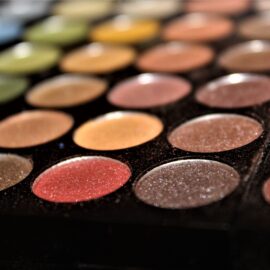

This article is an excerpt from the Shortform book guide to "The Willpower Instinct" by Kelly McGonigal. Shortform has the world's best summaries and analyses of books you should be reading.
Like this article? Sign up for a free trial here .
What is the what-the-hell effect? Why does your brain tend to take one bad decision and amplify it?
The what-the-hell effect is when you make one bad decision—such as eating a slice of pizza while on a diet—and makes it even worse—eating three more pieces because you already ate one. Rather than doing damage control and stopping at one, your brain says “what the hell” and keeps making it worse.
Here is the psychological background to the what-the-hell effect and some tips for avoiding it.
How Feeling Bad Leads to Giving In
Before we can dive into the what-the-hell effect, here’s some background on what leads to it.
When we want to access the willpower to work toward long-term goals, we need a positive state of mind. After all, it takes a certain amount of optimism to be willing to focus on the future. But even for the best of us, it’s impossible to stay upbeat all the time, so it’s key to understand what happens when our moods turn sour or we’ve had a rough day.
Our brains don’t like feeling bad, so they automatically start hunting for something to make us feel good. Unfortunately, the things we turn to when we want to feel good are often the things that make us feel bad. Ask any drug addict, food addict, or any other kind of addict—most will say that indulging in their addiction usually winds up making them feel worse, not better. Clearly we need to find a way to improve our moods that’s more consistent with our long-term goals.
When Stress Makes Us Give In
It’s not surprising that the brain is more susceptible to temptation when we’re stressed. Stress engages our fight-or-flight response—the opposite of the pause-and-plan response that helps us make solid, carefully thought-out decisions. When you’re in fight-or-flight mode, any temptations that cross your path are suddenly more tempting than ever before. But instead of giving in, try relieving the stress that’s making you susceptible to temptation.
According to the American Psychological Association, the best ways to relieve stress are exercising or playing a sport, praying, reading, listening to music, getting a massage, meditating or doing yoga, spending time outdoors, or spending time with friends or family. These methods actually boost the “happy chemicals” in your brain and diminish the stress response.
The worst ways to relieve stress are the strategies that promise a reward but don’t actually deliver it—smoking, drinking, gambling, eating, shopping, playing video games, binge-watching movies or TV, and surfing the Internet.
And yet time and time again, we often choose the worst strategies over the best strategies. That’s because when we’re stressed, our brains point us toward the wrong activities.
Willpower Hack: Create a Goal Reminder Strategy
When you’re feeling bad, your brain will likely point you in the wrong direction, so you need something to steer you the right way. Develop a reminder strategy that tells you what to do—and what not to do—when you’re stressed. Here’s an example: Jane has a demanding job, and each day after work she comes home, opens a bottle of wine, and scrolls the Internet until her brain goes numb. Jane knows that she used to enjoy going to a yoga class after work, but her days are so challenging now that she can’t resist the siren call of chardonnay and solo online time.
One day, Jane finally forces herself to go to yoga class, and it’s even better than she remembered. She feels great and wants to make this a habit, but she’s afraid the habit won’t stick. So she makes a voice recording in which she talks about how great she feels after yoga class. Every time her brain points her toward wine and Wi-Fi, she listens to this recording, which motivates her to go to yoga.
When Media Saturation Makes Us Give In
One of the reasons we lose our self-control is because our brains are engaged in “terror management.” Whether we watch television, read the newspapers, or check our Facebook newsfeeds, we are constantly being reminded of terrible things happening in the world. We turn to temptation for comfort—and paying excessive attention to the news will certainly make us crave comfort.
Many people feel like it’s a moral obligation to pay attention as the world’s crises unravel. Maybe it is, and maybe it isn’t, but it’s worth considering how your behavior might change if you diminish your news consumption. When you’re being bombarded with messages about terror and uncertainty, you probably won’t be motivated toward future-oriented goals like starting a new business or improving your fitness level.
Feeling Guilty Causes the What-the-Hell Effect
It’s a vicious cycle: We vow that we’re going to stop stretching our credit limits in online shopping sprees, but then we get one of those irresistible emails from a favorite store offering 40 percent off if we shop before midnight. So we give in and buy that gadget we’ve been wanting. We feel great about our purchase for about two seconds, but then we feel terrible because we’ve committed another willpower failure. To assuage our regret, we check out a bunch of other shopping sites to see if those stores have any sales, and we buy more stuff we don’t need.
That behavior makes no sense, right? Why not minimize the harm by stopping at one purchase? This is what researchers call the “what-the-hell effect.” We go off our diets by eating one slice of pizza, and then we assuage our guilt and shame by eating three more slices. We know it’s stupid even while we’re doing it, but we can’t stop. Giving in a little makes us feel bad about ourselves, so we give in completely.
To break the cycle, stop telling yourself that one small setback means you’re a dismal failure. When you criticize yourself in this way, you wind up giving yourself an excuse to indulge more. Your brain feels the sting of your self-hate, and it immediately wants to soothe those feelings, which drives you straight toward whatever temptation comforts you—food, alcohol, cigarettes, shopping, and so on. It’s a downward spiral that’s hard to stop.
In fact, researchers believe we should try the opposite approach—instead of beating ourselves up, we should actually forgive ourselves for giving in. Encouraging words like “don’t be so hard on yourself” can stop a full-on binge before it gets started.
Punishing yourself for failures doesn’t work well with adult brains. Self-criticism is one of the fastest routes to poor motivation and self-control, and it’s also a slippery slope that leads to depression. Self-compassion and forgiveness, on the other hand, are the pathways to greater motivation and improved self-control.
Willpower Hack: Shush Your Inner Critic
How you handle your mistakes is far more important than the fact that you made the mistake in the first place. You need to find a compassionate way to respond to perceived failures. This exercise can help you silence your inner critic:
- Think about a time when you gave in to procrastination or indulged in an activity that you had sworn off doing. Now ask yourself these questions:
- What are your feelings about this failure?
- Do you feel critical about yourself?
- If so, what are your critical thoughts? Try to pay attention to those thoughts, perhaps even write them down.
- Next, tell yourself this: “Everyone struggles with self-control at times. Willpower failures are part of what it means to be human. Your setbacks do not mean that you are a weak or bad person; they mean that your brain is giving you poor instructions right now.”
- Do you believe that these statements are true?
- Can you think of other people you respect who have struggled with temptation of some kind?
- Now ask yourself: If your best friend were in your position right now, would you offer them support or would you condemn them?
- If it’s the former, how would you encourage them to stay on track and not forget about their goals?

———End of Preview———
Like what you just read? Read the rest of the world's best book summary and analysis of Kelly McGonigal's "The Willpower Instinct" at Shortform .
Here's what you'll find in our full The Willpower Instinct summary :
- That willpower isn't a character trait but rather an innate instinct that's wired into our brains
- How marketers can use "neuromarketing" to influence you to purchase more
- How you can harness your innate willpower to achieve your goals






